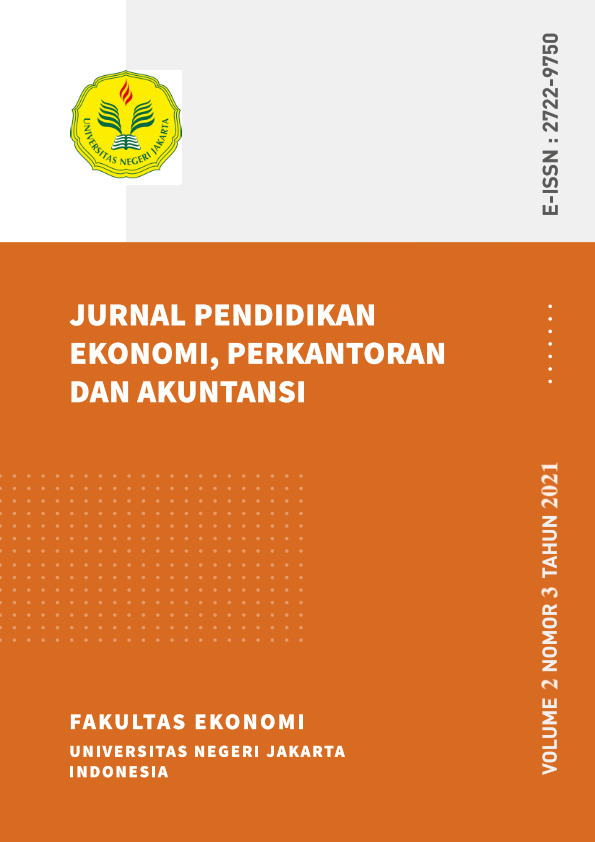THE EFFECT OF ORGANIZATIONAL CULTURE AND JOB SATISFACTION ON ORGANIZATIONAL COMMITMENT ON EMPLOYEES OF THEDIVISION BUSINESS DEVELOPMENT PT MR. DIY IN JAKARTA
Keywords:
Organizational Culture, Job Satisfaction and Organizational CommitmentAbstract
This study aims to determine whether there is an Influence of Organizational Culture and Job Satisfaction with Organizational Commitment on the employees of theDivision of Business Development PT. MR. DIY in Jakarta. This research takes 6 months starting from April 2020 to September 2020. In this study, the method used is the survey method. The affordable population in this study amounted to 327 employees with a sample of 180 employees. The sample refers to the calculation using theformula Slovin with the respondent selection technique using simple random sampling. Organizational Commitment (Y), Organizational Culture (X1) Job Satisfaction (X2) are primary data obtained from the results of distributing research questionnaires. The data analysis technique used is, first, the analysis requirements test which consists of a normality test and a linearity test. Normality test results 0.200 > 0.05. The results of the linearity test of the value of Sig Organizational Culture (X1) 0.000 <0.05 and Job Satisfaction (X2) 0.000 <0.05. Multicollinearity test results forvalue Tolerance Organizational Culture(X1) 0.926 > 0.1, and VIF value 1.079 < 10, and Job Satisfaction (X2) 0.926 > 0.1, VIF value 1.079 < 10. Heteroscedasticity test results for Organizational Culture (X1) 0.906 > 0.05 and Job Satisfaction (X2) 0.401 > 0.05. The three multiple linear regression tests with the result = 7,823 + 0,451X1 + 0,072X2. The four hypothesis tests consist of the F test and t test. The results of the F test in thetable ANOVA are F-count > F-table, namely 45.394 > 3.05. This means that there is a joint influence between organizational culture, job satisfaction on organizational commitment. The results of the t-test for organizational culture are t-count 8.381 < t table 1.97346 and for Job Satisfaction t-count is 2.090 > t-table value 1.97346. This means that there is a positive relationship between organizational culture and organizational commitment, as well as a positive influence between job satisfaction and organizational commitment. Fifth coefficient of determination (R2)with a yield of 0339. This is interpreted by Organizational Culture (X1), and Job Satisfaction (X2) to explain the variable Organizational Commitment (Y) simultaneously at 33.9%, while the remaining 66.1% is influenced by other factors not examined by researchers.









